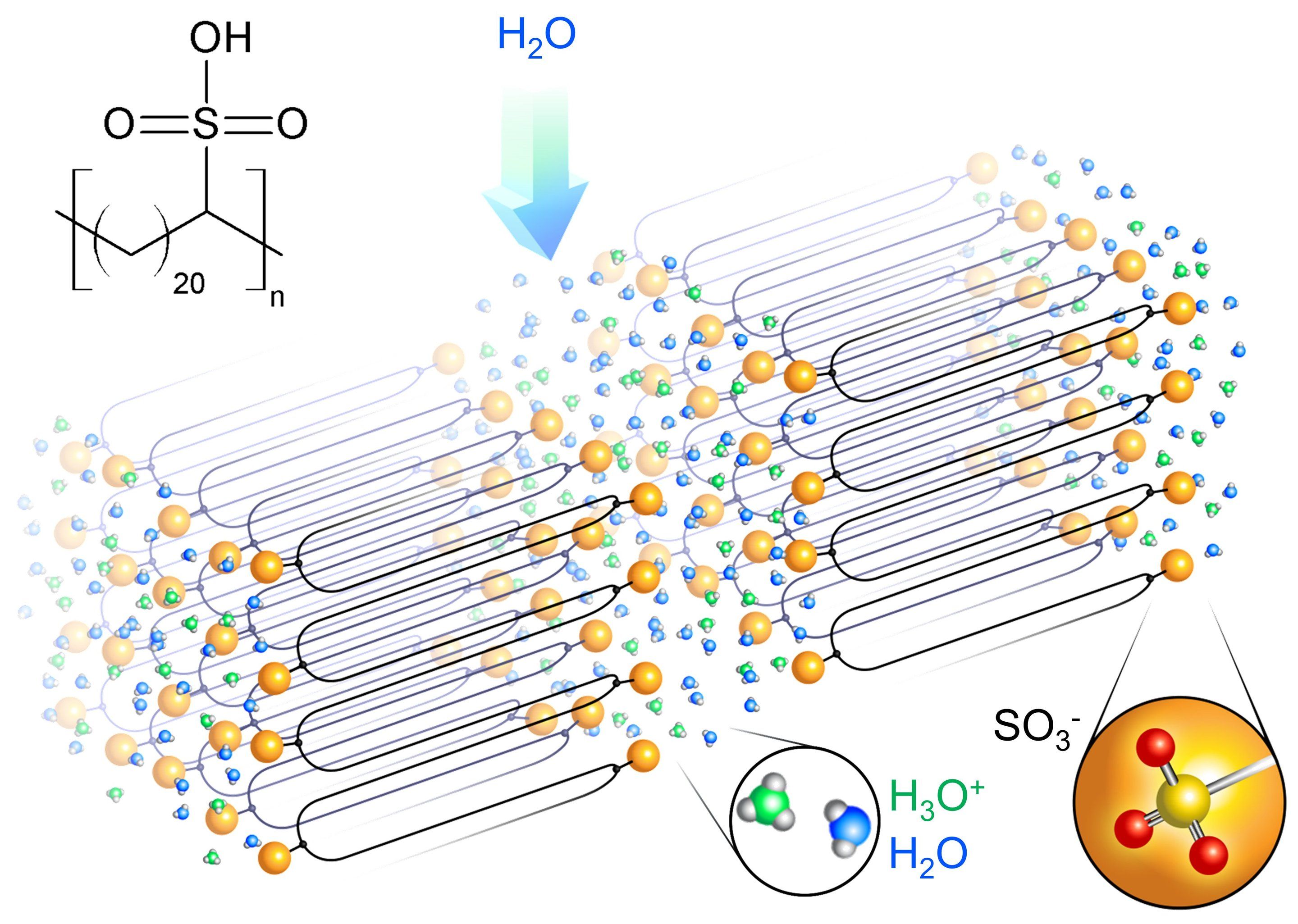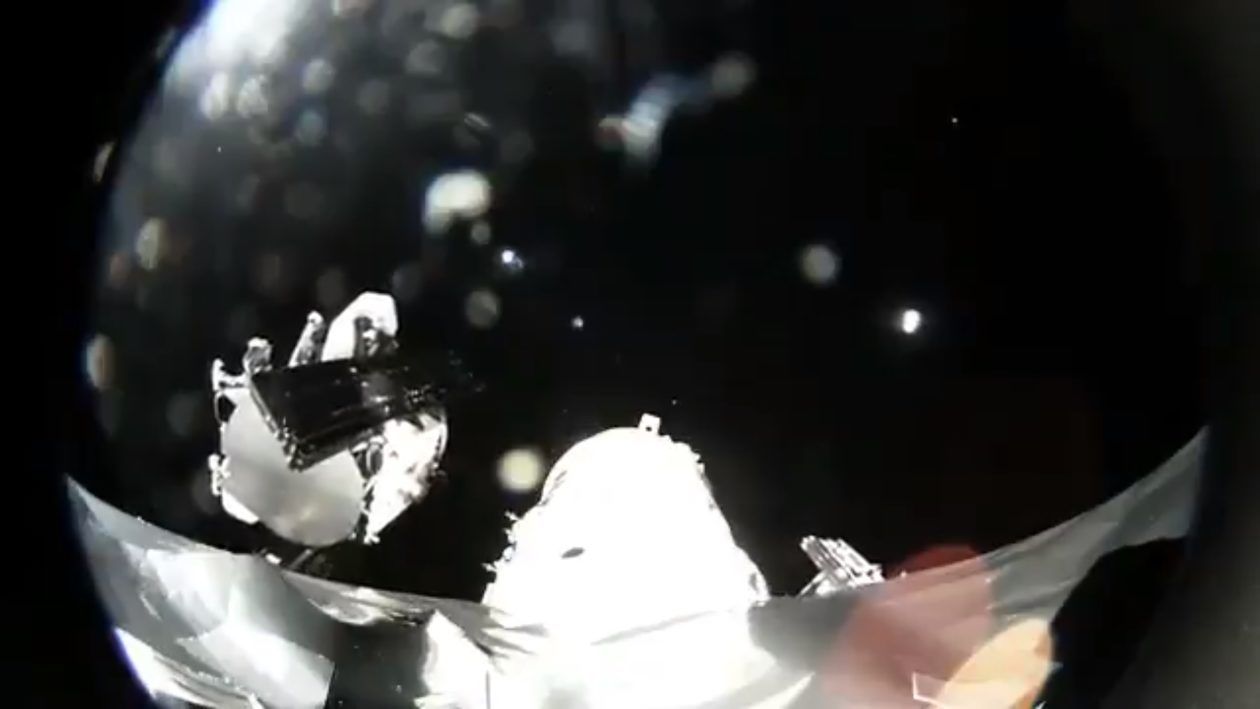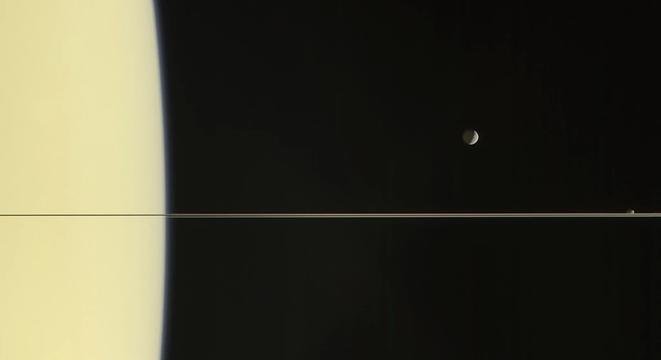Powerful Earth-observing instruments aboard NASA’s Terra and Aqua satellites, launched in 1999 and 2002, respectively, have observed nearly two decades of planetary change. Now, for the first time, all that imagery — from the first operational image to imagery acquired today — is available for exploration in Worldview.
Category: satellites – Page 183

Engineers design new solid polymer electrolyte, paving way for safer, smaller batteries and fuel cells
Fuel cells and batteries provide electricity by generating and coaxing positively charged ions from a positive to a negative terminal which frees negatively charged electrons to power cellphones, cars, satellites, or whatever else they are connected to. A critical part of these devices is the barrier between these terminals, which must be separated for electricity to flow.
Improvements to that barrier, known as an electrolyte, are needed to make energy storage devices thinner, more efficient, safer, and faster to recharge. Commonly used liquid electrolytes are bulky and prone to shorts, and can present a fire or explosion risk if they’re punctured.
Research led by University of Pennsylvania engineers suggests a different way forward: a new and versatile kind of solid polymer electrolyte (SPE) that has twice the proton conductivity of the current state-of-the-art material. Such SPEs are currently found in proton-exchange membrane fuel cells, but the researchers’ new design could also be adapted to work for the lithium-ion or sodium-ion batteries found in consumer electronics.

A Forgotten Element Could Help Us Redefine The Way We Measure Time
A rare earth element that doesn’t get much mention could become the key to upgrading atomic clocks to become even more accurate. This could help us explore space and track satellites, and even keep the world’s time zones in sync.
Atomic clocks use the oscillations of atoms under laser fire as a measurement of time, in the same way a grandfather clock uses the swing of a pendulum. They can lose less than a second over 50 million years, depending on the elements used — but scientists want even greater accuracy.
That’s where lutetium (Lu) comes in. It offers both a higher level of stability and a higher degree of precision than the caesium or rubidium of today’s atomic clocks, according to a team of researchers from the Centre for Quantum Technologies (CQT) in Singapore.

SpaceX President Gwynne Shotwell sees satellites as bigger market than rockets
SpaceX is taking a commanding role in the rocket business — but Gwynne Shotwell, the company’s president and chief operating officer, expects the satellite business to be more lucrative.
Shotwell sized up SpaceX’s road ahead in a CNBC interview that aired today in connection with the cable network’s latest Disruptor 50 list. For the second year in a row, the space venture founded by billionaire Elon Musk leads the list.
How 3D Printing Is Unlocking A New Space Race
A new space race is in the works, thanks to 3D printing. This time around, it’s not about large government agencies vying to blast human astronauts into uncharted territory. Instead, today’s competitors are aerospace startups like Rocket Lab and Relativity Space that are trying to launch satellites into orbit.

Iridium to complete next-generation satellite deployment
WASHINGTON — Iridium expects to have its next-generation satellite constellation deployed and in service by this fall as it looks to win approvals for new maritime and aviation applications.
In a conference call with reporters May 14, Iridium Chief Executive Matt Desch said the remaining three launches of Iridium Next satellites should be completed by the third quarter of this year, with the satellites in the final positions shortly thereafter.
“All of the satellites are going to be in place within probably about 30 days of our final launch,” he said. The Iridium operations team has become more efficient in maneuvering new satellites into their planned orbital slots and putting them into service. “It will be very shortly after our final launch that we will have 100 percent Iridium Next satellites.”


A spectacular destination for astronomy fans is being built in rural Norway
The facility, which was originally used by the US military to spy on Soviet satellites during the Cold War, is undergoing a major overhaul to attract tourists and researchers alike. In search of inspiration, Snøhetta’s designers took astronomy classes and were captivated by the architecture of the galaxy.
“We learned about the eight shaped analemma diagram that the moon and the sun makes if you watch them from the same point over 365 days,” says Skaare. “We were especially inspired by the ‘ugly moons’ of Mars, with its funny shape,” she says referring Phobos and Deimos, the red-planet’s two lumpy satellites.
Mars’s lumpy-potato moons, in fact, inspired the shape of Solobservatoriet’s visitor cabins. Surrounding the planetarium are several imperfect-sphere rooms for stargazers who want to spend the an evening in the forest—perhaps to catch the spectacular Northern Lights. Designed to accommodate groups of two to 32, the cabins will be loosely scattered around the planetarium, by design.

NASA Just Launched a Mars Lander That Will Dig Deep into the Red Planet
A mission like no other.
NASA successfully launched its InSight lander Saturday, setting off its mission to Mars.
The InSight lander – short for Interior Exploration using Seismic Investigations, Geodesy and Heat Transport – is set to arrive on Mars in November 2018. It was launched attached to the Atlas V rocket from the Space Launch Complex 3 at Vandenberg Air Force Base in California before it later detached to make its way over to the Red Planet.
The successful launch also marks NASA’s first interplanetary mission to take off from the West Coast, according to the Associated Press. InSight will explore more of Mars than has ever been studied before. InSight will dig close to 16 feet into the surface of Mars to study the planet’s temperature. It will also take the first measurements of marsquakes. The Atlas V rocket also brought on two mini satellites that will follow the InSight on its mission.